Key takeaways:
- Audio news aggregators personalize and enhance the listening experience, fostering community and connection around shared interests.
- Listening to audio news transforms everyday moments into opportunities for learning, engagement, and meaningful conversations.
- Popular platforms like NPR One, Spotify, and Pocket Casts offer user-friendly access to tailored news content, allowing listeners to absorb information at their convenience.
- Engaging with audio narratives from various perspectives deepens understanding of social issues and encourages active participation in advocacy.
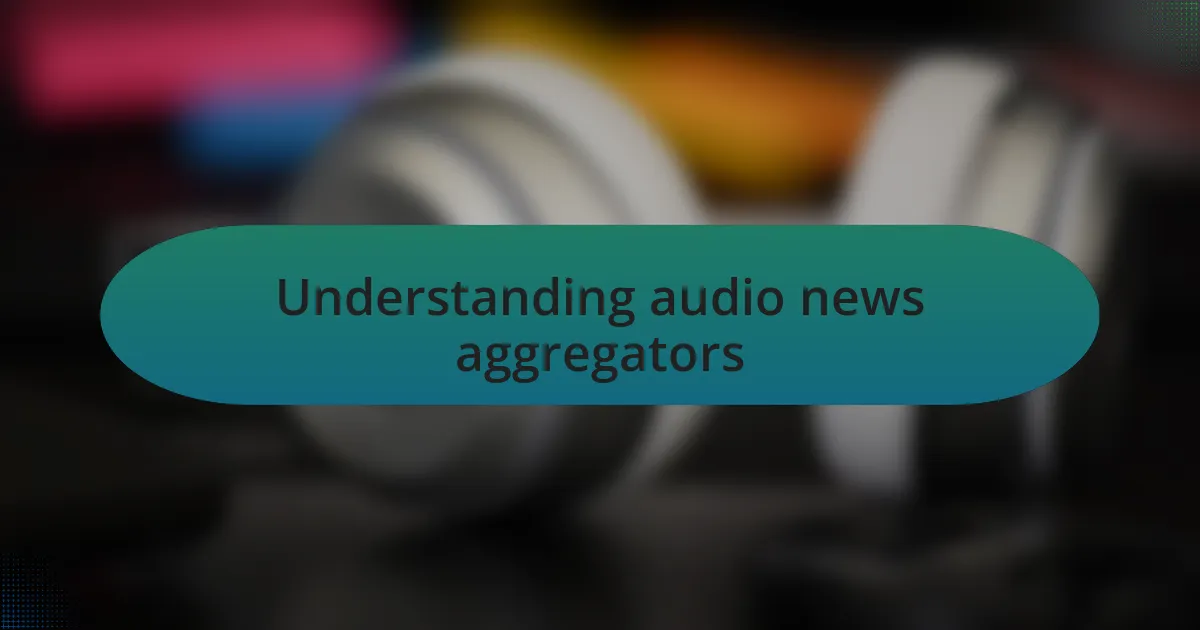
Understanding audio news aggregators
Audio news aggregators serve as digital curators, pulling together diverse audio content from various sources to streamline our listening experience. I remember the first time I stumbled upon one; the sheer variety of news stories and opinions available at my fingertips was exhilarating. It made me wonder—how did I ever keep up with current events before these platforms came along?
These tools not only gather information but also tailor it to our preferences, making the experience more personal. For instance, I often find myself immersed in podcasts that cover topics I’m passionate about, seamlessly transitioning from breaking news to in-depth discussions. Isn’t it fascinating how these aggregators can transform our daily commute into an opportunity to learn and engage?
Moreover, audio news aggregators cultivate communities around shared interests and narratives, fostering a sense of connection. When I listen to a story that resonates with me, I can’t help but feel part of a larger conversation. It raises an interesting question—how much do our shared audio experiences influence our perspectives on social issues?
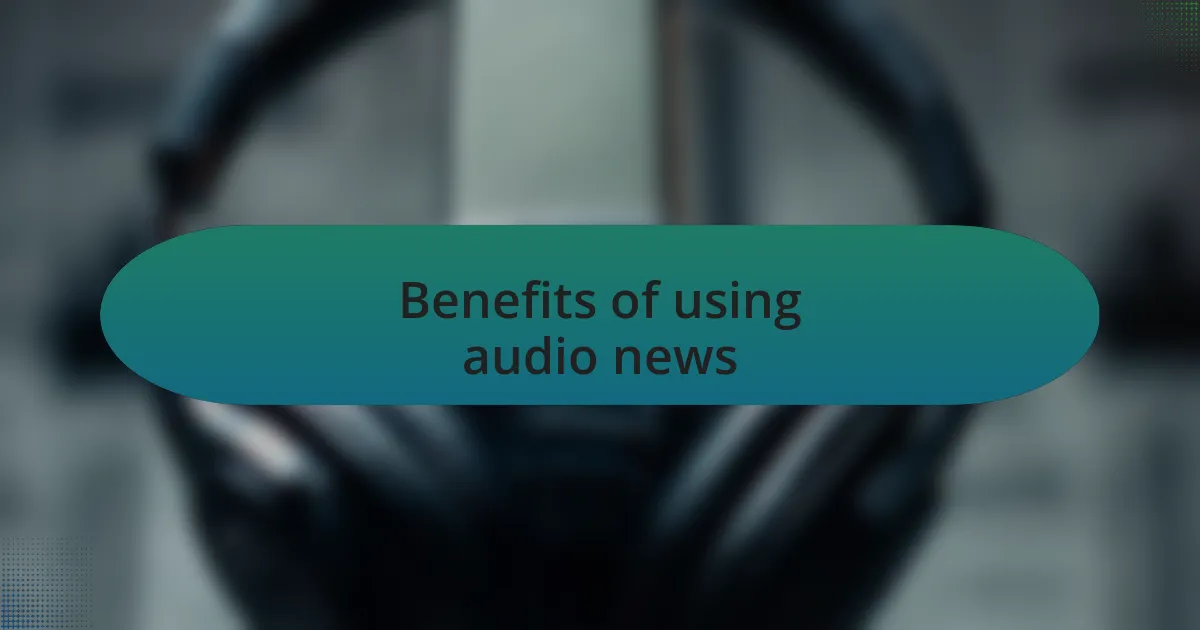
Benefits of using audio news
Listening to audio news can transform mundane moments into opportunities for connection with the world around us. Just the other day, while cooking dinner, I tuned into a podcast that discussed the social implications of the latest protests. The ability to absorb information while multitasking not only kept me informed but also sparked thoughtful conversations with my family at the dinner table. Doesn’t it feel empowering to share insights from a variety of perspectives just by clicking play?
Another significant benefit is accessibility. Unlike traditional news formats, audio news accommodates different learning styles and preferences. There’s something about hearing a story rather than reading it that resonates differently with me. I recall feeling particularly moved when I encountered a first-person narrative about the protests; it made the event come alive in a way that static text could never match. How often do we find that personal stories can ignite our understanding and empathy?
Finally, audio news fosters an unparalleled sense of immediacy. I enjoy the way these platforms can give me the latest updates, often in real-time, providing a direct line to unfolding events. I remember vividly sitting in my car, listening to live coverage as a story developed. It made me feel like I was witnessing history, which is a unique sensation in our fast-paced world. In moments like these, I can’t help but appreciate the power of audio to create profound connections with current events.
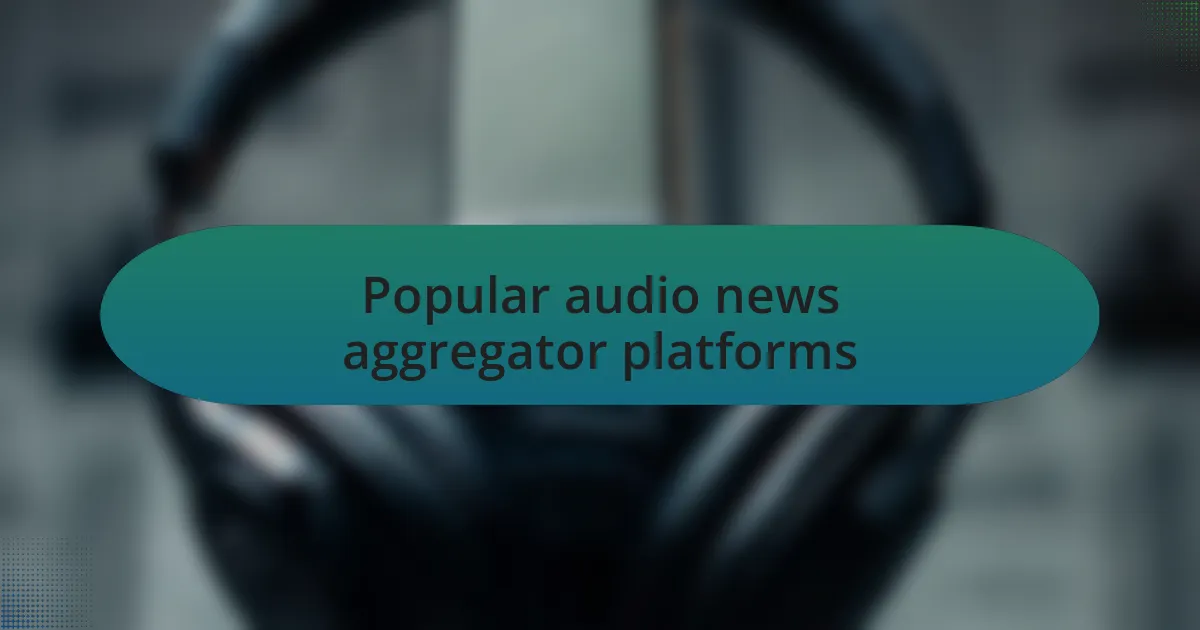
Popular audio news aggregator platforms
Hearing about the latest protests through audio news has led me to explore various aggregator platforms, each offering unique features. For instance, I frequently use NPR One after finishing work. It’s a wonderful way to unwind, as I simply plug my headphones in and let the curated stories play. Isn’t it fascinating how I can receive tailored news that aligns with my interests without lifting a finger?
Another platform that has caught my attention is Spotify’s podcast section. The breadth of coverage regarding current events, especially those protests, is impressive. I remember driving and coming across a compelling interview with an activist discussing the motivations behind the movements. It made me reflect on how music and activism can intertwine so effortlessly, creating a deeper emotional connection to the news.
Finally, I often find myself diving into Pocket Casts. What I love is its user-friendly interface and ability to save episodes for later. Just last week, I saved a piece analyzing the protests’ impact on communities. Listening to it later while sipping coffee felt like attending a conversation where I could learn at my own pace. Have you ever felt the need to pause and reflect on pivotal moments? That’s the beauty of choosing when and how to engage with audio news.
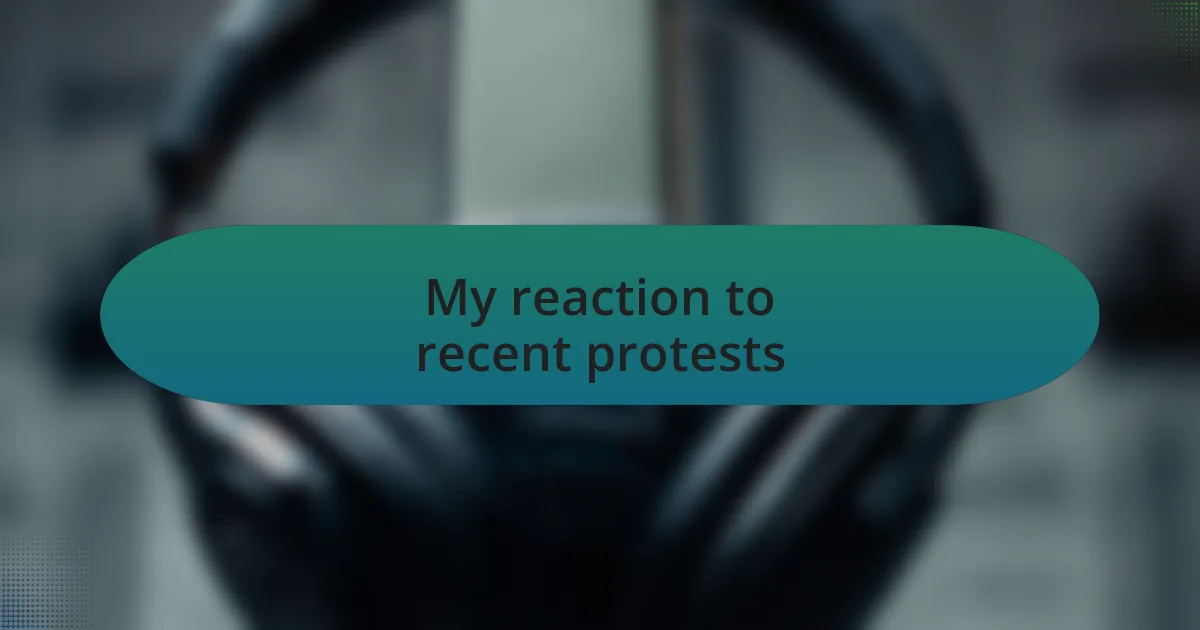
My reaction to recent protests
When I first listened to the reports on the recent protests, I was struck by the sheer passion and urgency in the voices of those sharing their stories. The sound of their experiences really resonated with me, stirring a mix of empathy and concern. I found myself reflecting on how vital it is for my community to engage with these issues and show support.
One evening, while driving home, I tuned into a podcast that delved deep into the origins of the protests. The host’s interviews with grassroots organizers painted a vivid picture of resilience and hope. Hearing about their struggles and triumphs made me realize the importance of standing in solidarity with those advocating for change. Have you ever experienced a moment where a story struck a chord with you, compelling you to rethink your own views?
Finally, after listening to a series of expert analysis segments, I felt a renewed sense of responsibility to stay informed and engaged. The nuance in the discussions made me appreciate how complex social movements can be; they’re not just headlines but human stories with real stakes. Sometimes, I find myself wondering: how can we amplify these voices and ensure they’re heard?
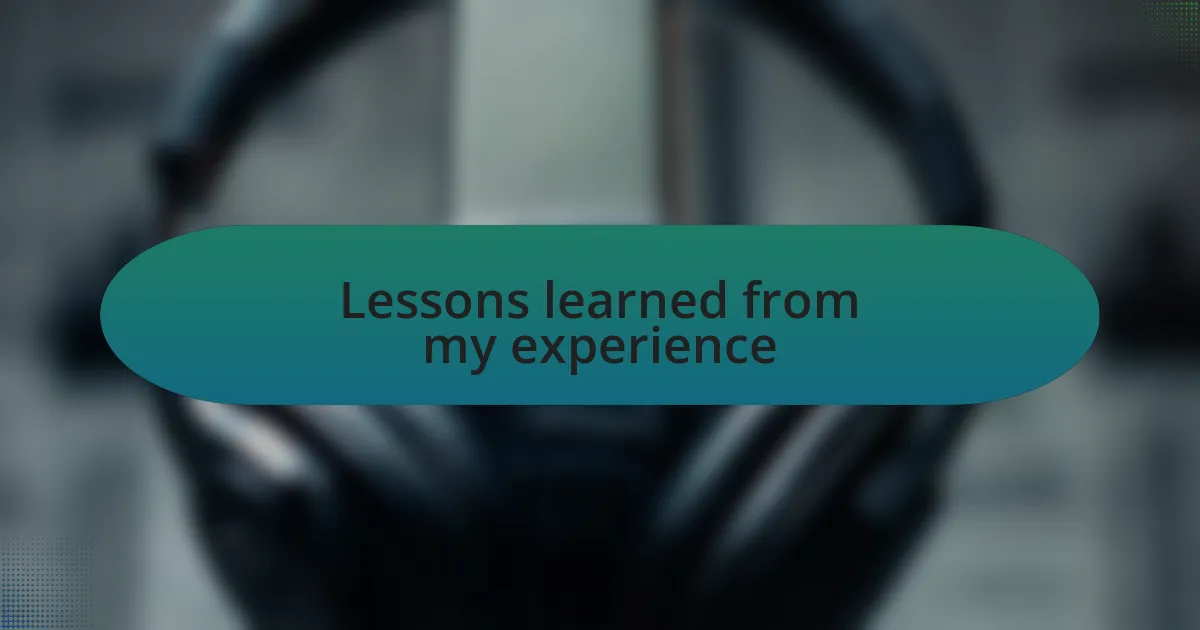
Lessons learned from my experience
Reflecting on the protests has truly opened my eyes to the power of storytelling. I remember a moment during a community meeting where someone shared their personal journey related to the cause. Their vulnerability not only impacted me emotionally, but it also highlighted the strength of connection that emerges from shared experiences. It made me realize that listening is just as important as speaking up.
One lesson that stands out for me is the value of active participation. I decided to volunteer with a local advocacy group after hearing about their challenges firsthand. This decision not only deepened my understanding of the issues but also forged meaningful relationships with others who share a commitment to change. How often do we miss opportunities to contribute simply because we feel overwhelmed by the scale of the problem?
Lastly, I’ve learned that personal growth often comes from discomfort. Engaging with difficult conversations about social issues can be intimidating, yet it’s within those discussions that I find the most significant growth. I still recall a recent debate that made my heart race, but ultimately pushed me to confront biases I didn’t even know I had. Isn’t it fascinating how our discomfort can lead to profound insights and a deeper connection to the world around us?